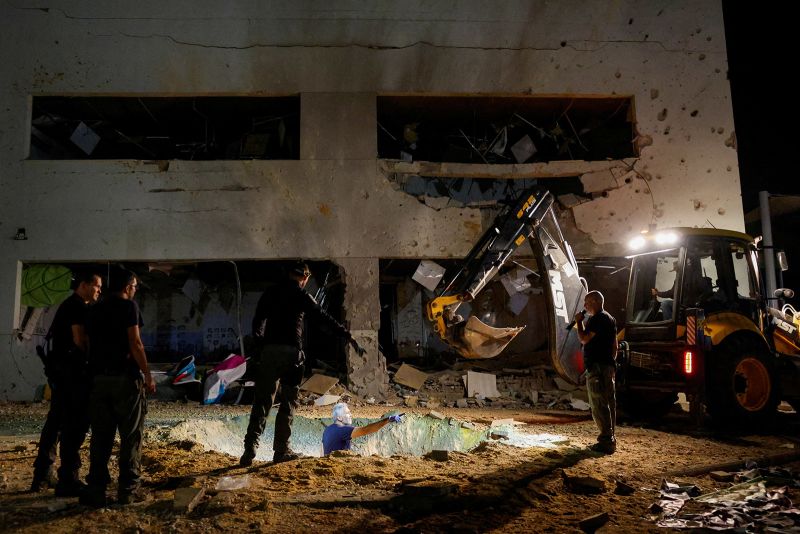UN Security Council schedules emergency meeting on Middle East
The meeting is set for 10am local time at UN headquarters in New York on Wednesday (14:00 GMT).
In a letter to the council, Israel’s envoy to the UN, Danny Danon, accused Iran of trying to destroy Israel “with a ring of fire from seven fronts”. Danon urged the Security Council to condemn the country and designate its Islamic Revolutionary Guard Corps (IRGC) as a “terrorist” organisation.
Iran has said it launched its missile attack against Israel in retaliation for killings in Gaza and Lebanon, as well as the assassinations of Hamas, Hezbollah and IRGC leaders.
Risk of Israeli attack on Iranian nuclear infrastructure ‘particularly high’
Ali Vaez, the Iran Project director at the International Crisis Group think tank, says there is a “real risk” of Israeli strikes against Iranian nuclear infrastructure.
“The risk of an [Israeli] attack on the nuclear programme is particularly high because Iran’s defensive shield Hezbollah is on its knees,” Vaez told Al Jazeera.
“US forces are already in the region shielding Israel, and for Israel, this is potentially a once-in-a-generation opportunity to take care of a major threat that it has perceived from Iran over the past few decades,” he explained.
“And it also probably knows that even if this is resolved diplomatically, it will not be to Israel’s satisfaction. So I think there’s a real risk of a strike on nuclear facilities.”
Vaez added that regardless of whether Israel targets Iranian nuclear infrastructure or military installations, a large Israeli response could still trigger a wider war.
France says forces in Middle East mobilised to ‘counter the Iranian threat’
French President Emmanuel Macron has condemned Iran “in the strongest possible terms” for its “new attacks against Israel”.
Macron said that France was “committed to Israel’s security” and French military resources in the Middle East have been mobilised to “counter the Iranian threat”, the president’s office said in a statement following a meeting of the country’s national defence and security council.
Macron also called on Israel to end its military operations in Lebanon “as soon as possible” as “too many civilians are already victims”, and on Hezbollah to cease all attacks against Israel and its people, his office said.
The French president also appealed to “all actors involved in the crisis in the Middle East to exercise the greatest restraint”.
Err, you forgot about the genocide... and the hostages...





























































